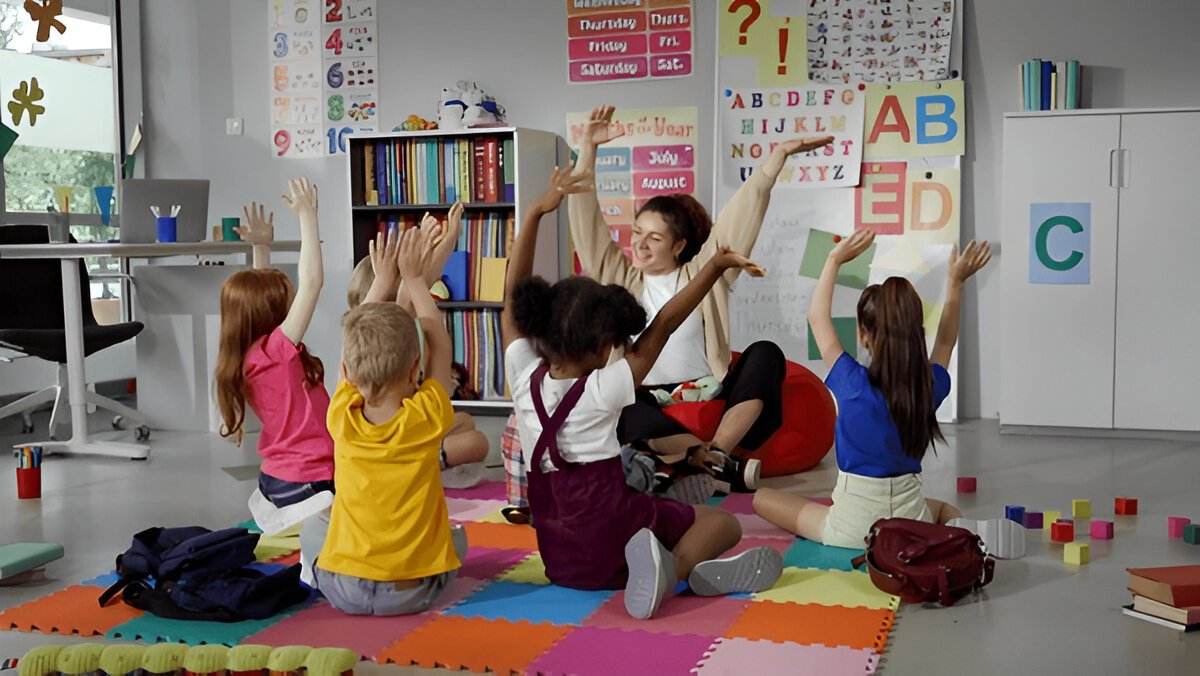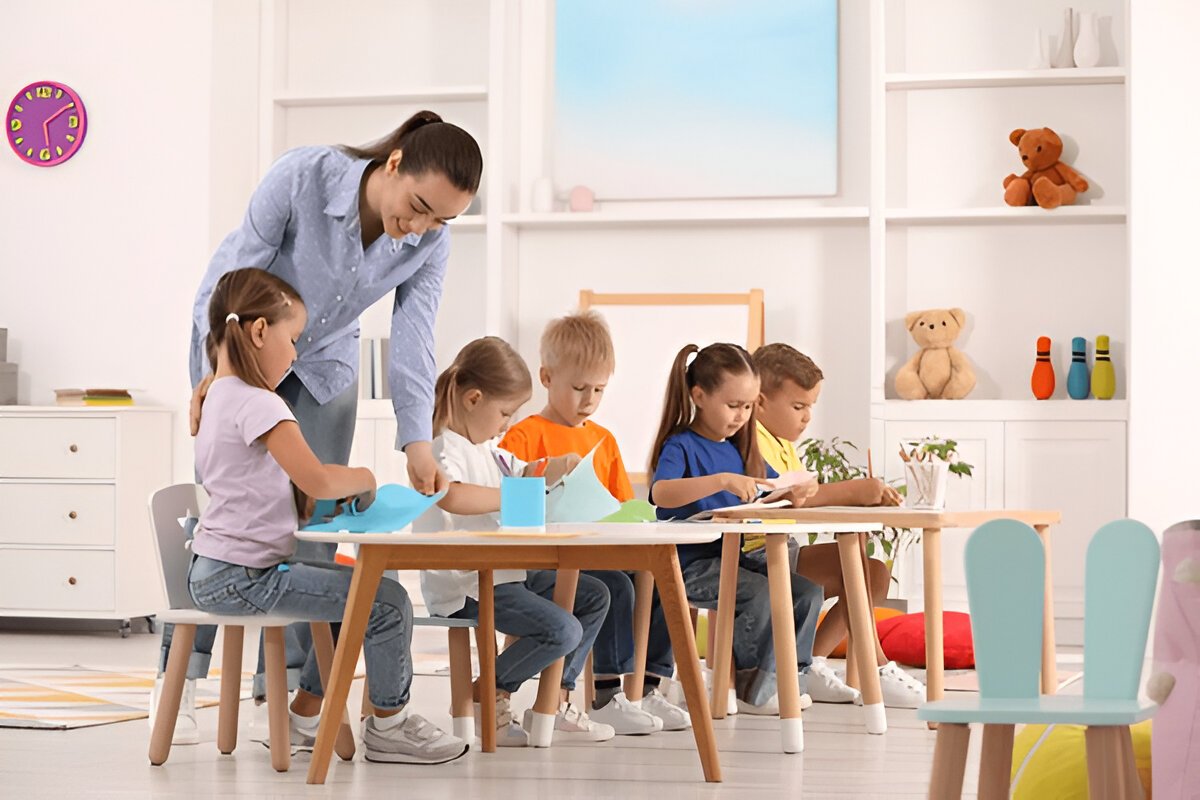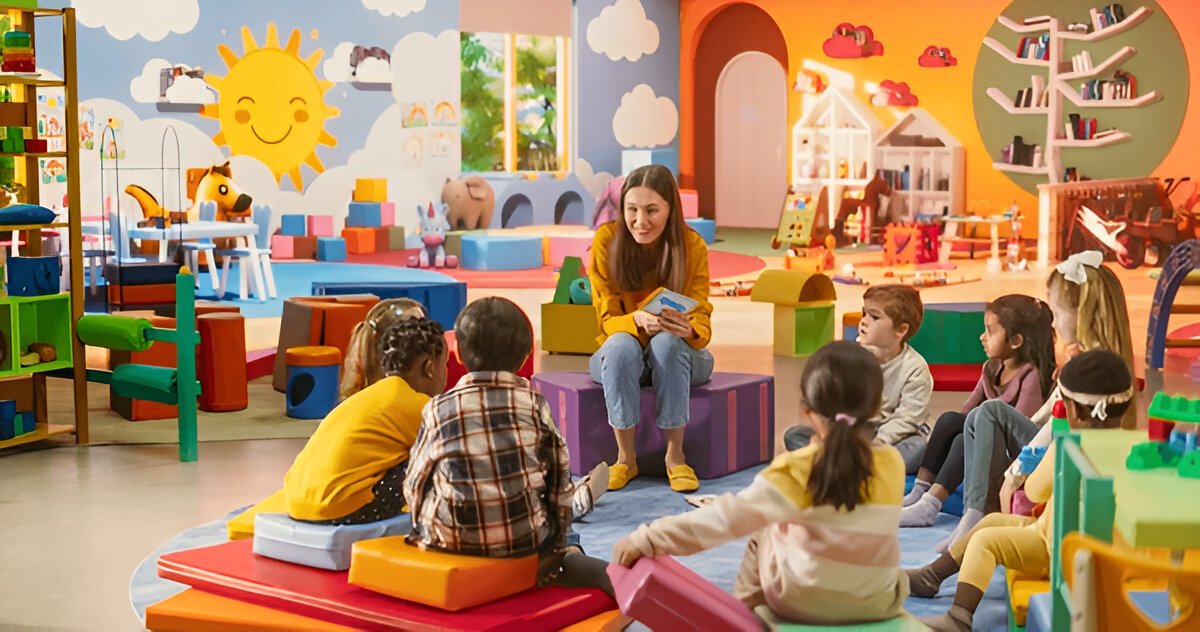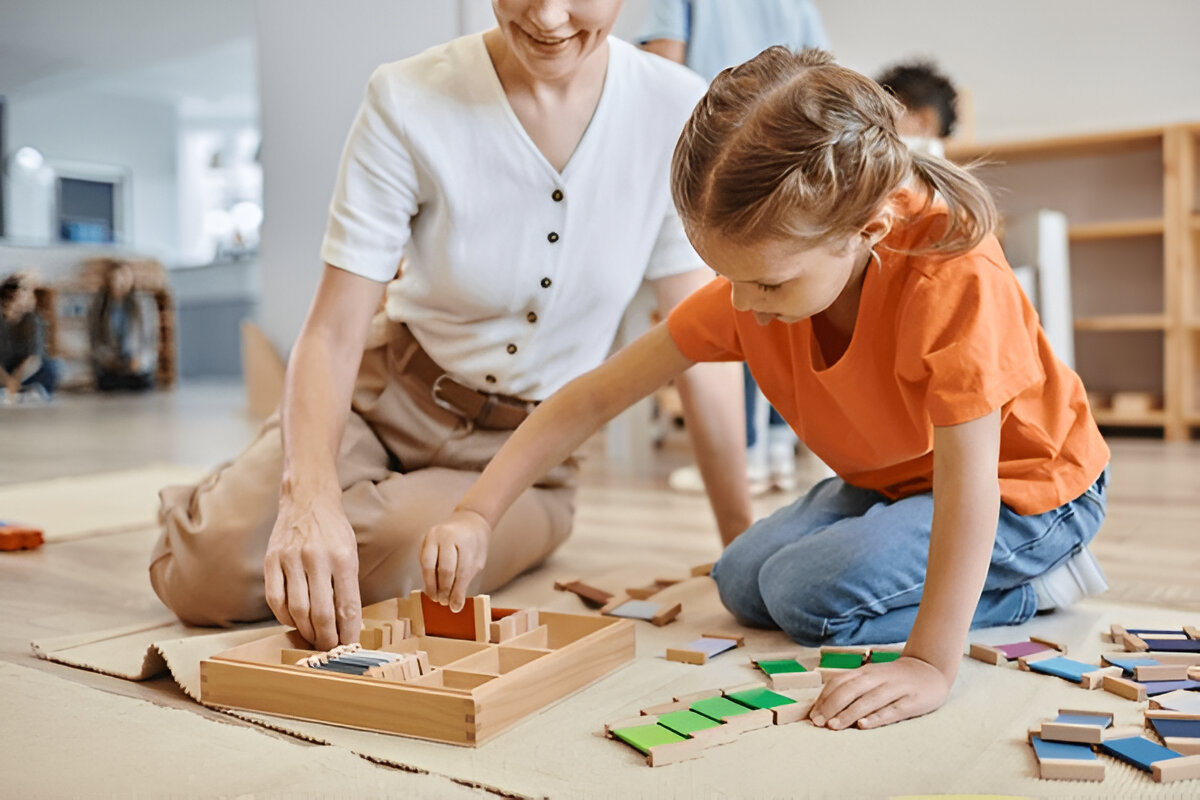That first day of kindergarten is huge. Your child steps into a vibrant classroom. You may feel proud, or a little nervous. But, Kindergarten is more than just ABCs. It’s a magical world of discovery. Children learn about themselves and others. They find the joy of learning. And at its heart are engaging, hands-on kindergarten activities. These might look like simple play. But they are so much more.
Why These Kindergarten Activities Are So Important?

Children at this age are like eager sponges. They soak up everything around them. Kindergarten activities are the perfect vehicle for this as they foster growth in unique ways. Traditional lessons often can’t do this. These activities tap into a child’s desire to explore. They also encourage interaction. They are profoundly about true development.
Building Unshakeable Confidence
Just see their pure delight. A tricky puzzle piece clicks into place. Similarly, they share a favorite toy successfully. These small victories are powerful boosts. They truly build self-esteem. Children begin to believe in their own capabilities. They learn that trying leads to success. This holds true even with a few missteps along the way. Therefore, these kindergarten activities build lasting resilience.
Developing Essential Social Skills
The classroom is their first “society” outside the home. Here, children learn complex social skills. They share and take turns. They gently negotiate for items and also understand a friend’s feelings. These are crucial building blocks, indeed. They help form friendships. They teach peaceful conflict resolution. Ultimately, they make children cooperative. Thus, these kindergarten activities are vital for social growth.
Sparking Limitless Curiosity
Give children materials to manipulate. Offer questions to ponder. Provide open-ended scenarios. Their natural curiosity then ignites. Hands-on experiments are key. For example, observe a seed sprout. Mix different colors. Open-ended play scenarios encourage questions. “Why does this happen?” “How can I make it work?” This spirit, therefore, drives lifelong learning.
Strengthening Foundational Academics Joyfully
Forget rote memorization. Early literacy and numeracy skills are woven in seamlessly. Engaging games, catchy songs, and creative tasks teach them. Learning the alphabet becomes a fun hunt. Counting, too, becomes playful with blocks. This approach makes learning fun. It’s memorable and deeply ingrained. It’s never a chore. Consequently, these kindergarten activities make learning effortless.
Refining Crucial Motor Skills
Holding a crayon precisely. Energetic running and jumping. These movements are vital for development. They develop small hand muscles. They also develop large body muscles. These physical skills are not just for play. They are fundamental for writing. They help with dressing themselves and aid in navigating their world safely. Ultimately, these kindergarten activities build essential independence.
These thoughtfully curated kindergarten activities do more than just fill the day. They actively lay robust groundwork, ensure future academic success and foster resilience. Most importantly, they nurture development. Children become well-adjusted and capable. They become curious individuals. They are truly ready to embrace whatever comes next.
A Peek into Kindergarten Activities: What They Are & Why They Work

Kindergarten activities are wonderfully diverse. They are certainly not one size fits all. Each targets different, interconnected areas of growth. Here are key categories and vivid examples. You’ll often see these in kindergarten. We’ll also look at how they benefit your child.
1. Social & Emotional Kindergarten Activities
This is where children truly understand group interaction. They learn about human emotions. They master the art of cooperation. This is crucial for their development.
Dramatic Play/Pretend Play: Imagine a classroom corner. It’s transformed into a “store” with cash registers. Perhaps a “doctor’s office” complete with tiny stethoscopes. Or a cozy “kitchen” for imaginary meals. This imaginative play is incredibly powerful. It encourages boundless creativity. Children invent scenarios and characters. Language flourishes through dialogue. They negotiate roles and plotlines. Problem-solving is constant. For instance, “What does a doctor do for a tummy ache?” Children develop empathy. They see others’ perspectives and understand diverse feelings. They learn to share space and ideas.
Group Games: Think of the joyful chaos of “Candyland.” Or the focused attention. Anticipate the giggling anticipation of “Duck, Duck, Goose.” These simple games teach social etiquette. They teach vital turn-taking skills. Following rules is important. They learn to manage winning and losing. Children read social cues. They understand fair play. They experience collective fun. This is crucial for group harmony.
Circle Time & Story Time: Children gather closely. They share weekend adventures and listen to captivating stories. This communal experience is foundational. It develops crucial listening skills. Attention span extends. Verbal expression is nurtured. They find their voice. It cultivates a powerful community sense. Each child feels valued and connected.
2. Fine Motor Kindergarten Activities
These activities strengthen small hand muscles. These are essential for many tasks. Think writing, drawing, or even buttoning a shirt. They prepare hands for precision.
Playdough & Clay: Feel the satisfying squish of playdough. Experience rhythmic rolling. Use plastic tools for careful cutting. Shape fantastical creatures. This tactile experience is a sensory delight. It’s also a fantastic hand workout. It builds significant hand strength. Hand-eye coordination refines. Creativity unleashes. Molding and transforming is calming. It allows open-ended exploration.
Cutting & Gluing: Little hands grasp safety scissors. They carefully cut along lines. Then, delicate gluing follows. Creations attach to paper. This activity improves hand-eye coordination. Eyes and hands work seamlessly. Bilateral coordination enhances. Both hands work together. Precision lays groundwork. This prepares for future writing.
Drawing, Painting & Coloring: See the vibrant paint swirl. Hear the crayon scratch. Focused coloring fills books. Spontaneous drawings appear. These artistic endeavors are powerful. They foster creativity. They allow rich self-expression. Children communicate feelings. They develop proper pencil grip. This is vital for legible writing.
Puzzles & Building Blocks (Lego, Duplo): Hear the satisfying click. Rotate a puzzle piece. It fits perfectly. Towering structures emerge. These are champions of cognitive development. Problem-solving skills enhance. Children strategize how pieces fit. Spatial reasoning sharpens. They understand object relations. Fine motor control refines. Perseverance builds. They stick with challenges.
3. Gross Motor Kindergarten Activities
Big, energetic movements are important. They develop large muscle groups; they improve overall coordination; they enhance balance; they cultivate body awareness.
Outdoor Play: Experience exhilarating freedom. Run across an open field; jump from a low step; climb playground structures; push and pull on a swing; pedal joyful tricycles. This is essential for physical health; it provides vital energy release. Coordination, balance, and agility improve. Outdoors encourages spatial understanding; furthermore, it fosters curiosity for nature.
Dancing & Movement Games: Follow instructions to move, like the stillness of “freeze dance,” or playful animal imitations. These activities improve balance; they develop rhythm. Overall body coordination enhances; moreover, the ability to follow directions strengthens, all while having fun.
Obstacle Courses: Create simple, imaginative courses. Use pillows to jump over; blankets become tunnels; weave around chairs. This playful way develops planning skills, prompting questions like, “How will I get there?” Body control refines as they navigate challenges. Problem-solving engages as they find efficient ways.
4. Early Literacy & Language Kindergarten Activities
In a no-pressure way, such activities take kids to a new realm of words, sounds, and stories, thus providing the necessary foundation that empowers them to master reading and writing easily.
Storytelling & Rhyming Games: Tell each other especially funny stories, pick out rhymed words in the songs, or come up with a word for “cat.” Besides their vocabulary receiving a great kick, their narrative skills will have great enhancements. Phonological awareness gets a boost, i.e., they become more aware of language sounds. Besides, their imaginations grow, being like little wizards, kids travel new worlds and times far away via stories.
Letter Recognition Games: Let’s initiate letter recognition with games like matching letter cards, energetic alphabet songs sing, or writing letters with the help of sand. First, the letter name and shape are introduced. Most importantly, this step is necessary as it enables them to get the main idea of words and finally leads them to reading.
5. Early Numeracy & Logic Kindergarten Activities
These activities introduce foundational math concepts and teach logical thinking through hands-on exploration. Consequently, this builds a solid foundation that prepares them for more complex math later on.
Counting Games & Songs: Chant rhythmically, count objects one by one, or sing lively counting songs. Numbers truly come alive for them; they develop one-to-one correspondence and understand quantity. Number recognition solidifies; moreover, sequencing skills build as they move beyond rote counting.
Sorting & Classifying: Focus on sorting mixed toys by color, size, or type – all cars together, all animals together. This teaches essential categorization skills; critical thinking sharpens as they learn to identify common attributes. It introduces early data analysis as they make sense of their world in an organized way.
Pattern Recognition: Create repeating patterns using colorful blocks, beads on a string, or simple drawings. This develops logical thinking; prediction abilities enhance as they understand sequences. It builds abstract relationships, which are foundational for understanding math concepts.
Simple Science Experiments: Observe objects floating or sinking in water, watch paint colors transform, or patiently plant seeds and watch them grow. These explorations encourage observation and foster predictions. Children begin to understand cause-and-effect; furthermore, they introduce problem-solving through fun, hands-on experimentation.
Bringing Kindergarten Activities Home: Powerful Tips for Parents
You certainly don’t need a classroom or expensive materials to support your child’s growth. Many kindergarten activities integrate easily into your daily routine; consequently, they transform everyday moments into powerful learning opportunities.
Unlock Your Child’s Potential: Fun & Learning!
📚 Read, Read, Read!
Make reading a daily ritual. After a story, spark conversations with open-ended questions like, “What do you think happens next?” Point out words and letters aloud. This not only builds a deep love for books but also significantly boosts language development.
🎨 Get Messy! Embrace the Chaos!
Don’t hold back! Encourage playdough sessions, finger painting, and even create sensory bins with rice, beans, or water (always supervise!). Profound learning happens in the mess as children explore textures, volumes, and learn about cause-and-effect in a tangible way.
🏡 Engage Them In Housework (Playfully!)
Simple household tasks are fantastic learning opportunities! Ask them to sort laundry by color, count plates while setting the table, or match socks. These activities teach practical life skills and are integrated examples of academic concepts in action.
🌳 Go Outdoors and Explore!
Prioritize daily outdoor time. Let them run, jump, and climb! Inspire them to discover nature: gather leaves, watch insects, or jump in puddles. Fresh air, space, and sensory stimulation are crucial for their development.
🎲 Play Games Together!
Dust off those board games, deal simple card games, or invent silly games on the spot! Playing together creates closeness, teaches fair play, and hones academic skills within a joyful family setting.
❓ Encourage “Why?”: The Power of Inquiry!
When they ask “Why?”, respond with passion, patience, and enthusiasm. Even better, encourage them to keep asking questions like, “What do you think happened?” or “Why do you think that works?” This nurtures critical thinking and a lifelong love of questioning.
📱 Limit Screen Time (Thoughtfully!)
Find the right balance – some educational apps can be beneficial. But always opt for more engaging and interactive play that involves the real world over passive screen consumption. Remember, the most powerful learning for young children is hands-on and interactive!
These activities are designed to foster holistic development and create lasting memories with your child. Enjoy the journey!
The Parent’s Role in Kindergarten Activities: Connecting
Your active involvement is truly the secret ingredient; it amplifies the power of these activities. Sit with your child, participate in their play, and show genuine interest in what they are doing. You are not just supervising; instead, you are connecting with them on a deeper level.
✨ Model Curiosity
Through your actions, you show them that learning and exploring are exciting and fun. When you approach the world with an open, inquiring mind, your children will follow suit. Let your enthusiasm for discovery be contagious!
👍 Provide Genuine Encouragement
Use phrases like, “You’re really trying hard!” or “I love how you figured that out!” This builds their resilience and fosters a vital growth mindset, teaching them that challenges are opportunities to learn and grow.
🗣️ Facilitate Language and Deeper Understanding
As they play and explore, describe what they do, ask open-ended questions, and narrate the process. This expands their vocabulary and helps them build crucial cognitive connections, deepening their comprehension of the world around them.
💖 Build an Unbreakable Connection
These shared moments create lasting memories where discovery and laughter abound. Focused play strengthens your bond; ultimately, it fosters a lifelong love of learning within your child.
Every interaction is an opportunity to learn and grow together!
So, the next time you observe your five-year-old deeply engaged in a task like constructing a tall block tower, painting a colorful art piece, or acting out the role of a superhero, take a little time. Remember they are no longer just playing, but also actively constructing. They are deeply developing, setting the stage for a lifelong learning journey, for experiencing new things, and for becoming happy and successful. Accept the happiness; get involved in the chaos; and see them develop. Check out Kinzy Club Blogs for more such helpful articles.
Also do check our Kinzy App to create fun memorable stories through our advanced Ai assistant with your kids.




